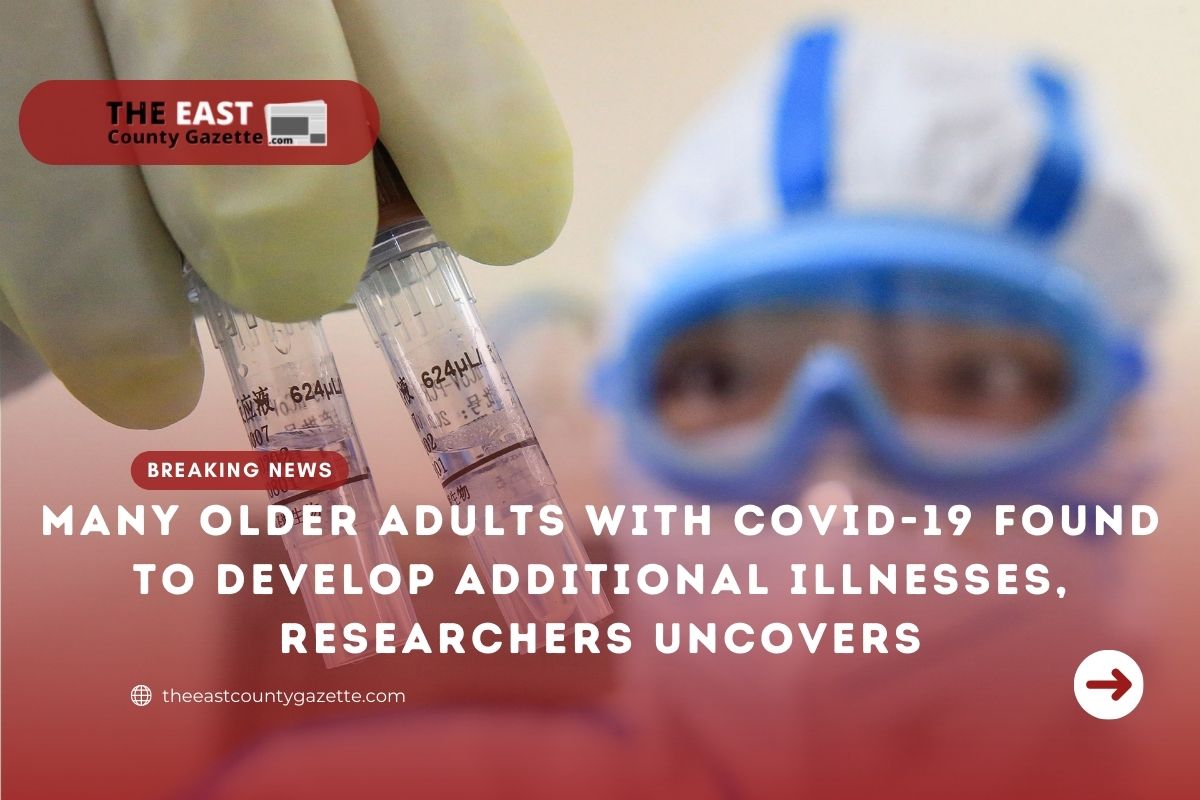Almost one third of older adults who were infected with COVID-19 in 2020 developed at least one new condition requiring medical attention.
The above fraction is 11% more than those who were not infected, a study published today in The BMJ discovered.
Heart, kidneys, lungs, liver and mental health complications were involved in the conditions, according Medicalxpress report.In recent years, studies have examined the frequency and severity of sequelae (new illnesses) caused by COVID-19 infection, but few have examined the effect of COVID-19 infection on older adults (at least 65 years old).
Researchers in the US investigated this issue by using health insurance plan records to identify 133,366 adults aged 65 and over in 2020 that had been diagnosed with COVID-19 before 1 April 2020.
These participants were matched to comparison groups (non-COVID) from 2020, 2019, and a group with viral lower respiratory tract illness.
The researchers then tracked conditions that occurred 21 days after COVID-19 diagnosis (the post-acute period) and calculated the excess risk for COVID-19-triggered conditions over several months based on age, race, sex, and whether patients were admitted to the hospital.
In the post-acute period of 2020, 32% of individuals diagnosed with COVID-19 sought medical attention for at least one new or persistent condition, an increase of 11% compared to the 2020 comparison group.
In comparison with the 2020 comparison group, COVID-19 patients were at an higher risk of respiratory failure (an extra 7.55 per 100 people), fatigue (an extra 5.66 per 100 people), high blood pressure (an extra 4.43 per 100 people), and mental disorders (an additional 2.5 per 100 people).
For the 2019 comparison group, similar results were found.
Only respiratory failure, dementia, and fatigue had an increased risk difference of 2.39, 0.71, and 0.18 per 100 people with COVID-19 compared with those with viral lower respiratory tract illnesses.
Read More: Democrats Have No Plans to Reinstate Monthly Check-up for U.S. Families
The risk of most but not all conditions was markedly increased in individuals admitted to hospitals with COVID-19.
A number of conditions are also more likely to occur in men, blacks, and people who are over 75 years old.
Researchers recognize some limitations associated with this observational study, including the fact that some diagnoses may not be directly related to infection with COVID-19.
There are currently over 357 million people worldwide infected with Coronavirus, so “the number of survivors with sequelae after the acute infection will continue to grow.”
“These findings further highlight the wide range of important sequelae after acute infection with the SARS-CoV-2 virus,” they penned.
“Understanding the magnitude of risk for the most important clinical sequelae might enhance their diagnosis and the management of individuals with sequelae after acute SARS-CoV-2 infection.”
“Also, our results can help providers and other key stakeholders anticipate the scale of future health complications and improve planning for the use of healthcare resources,” the authors added.

